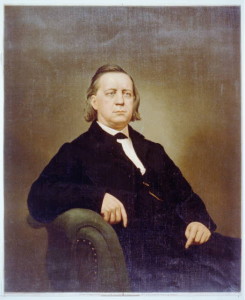If States’ Rights are obsolete, why can’t we make New England one state?
From the Richmond Daily Dispatch January 14, 1863:
New England’s rights Considered — her Undue preponderance Objected to.
A New York paper, taking up a subject that is receiving general attention in the North–the propriety of leaving New England “out in the cold”–says:
The area of the New England States, leaving out Maine, is 33,272 square miles, that of New York is 47,000. All the northern and eastern portion of Maine is a wild, mountainous, and inhospitable region, incapable of settlement, so that the total arable surface of New England does not exceed the cultivable area of New York. Now, we wish to put the question, (we put it merely for illustration,) what objection is there to obliterating all the internal boundaries which distinguish the several New England States on the map, and consolidating them all into a single State? What right (bear in mind, we ask the question only to illustrate an argument) have three millions of population residing in New England to twelve Senators in Congress, when nearly four millions residing in New York are entitled to only two? This immense preponderance of political power, out of all reasonable proportion to its area and population, is held only by the tenure of the State rights which that section is madly attempting to undermine and overthrow. The stability of this disproportionate and enormous power rests wholly on the sacredness of the old State boundaries, which New England influence is attempting to shake and sweep away, and which it has already succeeded in destroying in Virginia. It is a favorite saw of the radicals that “revolutions never go backward;” and if this work of demolishing State rights and obliterating old State boundaries is to proceed, it is one of the likeliest things in the world that this fanatical and destructive device should return to plague the inventors. If they are going to roll up the Constitution as a piece of obsolete “sheepskin,” (this is Mr. Beecher’s tasteful and reverent epithet,) and return to first principles, why may not New York insist that New England shall take a dose of its own medicine? If the principle of human equality is to be rigorously carried out in the spirit of a doctrinaire, without regard to race or color, why not also without regard to the invisible mathematical lines which form State boundaries? Why, in short, is not a New Yorker as good as a Yankee? New England has one Senator in Congress to every 261,000 inhabitants, while New York has only one to 1,940,000, making the political value of a New Englander very nearly seven and a half times as great as that of a New Yorker.

